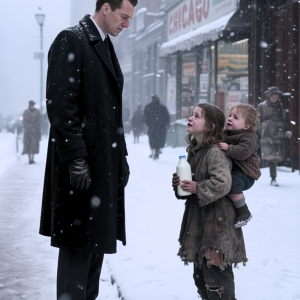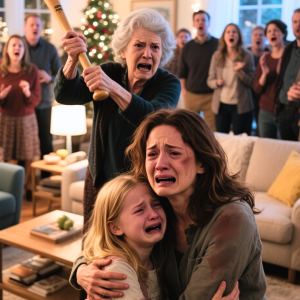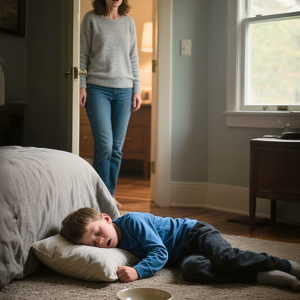
Sometimes the people who are supposed to love us the most end up being the ones who hurt us deeply. I never thought anyone could be so cruel to a child — especially not someone meant to be family.
On the morning of my daughter’s school pageant, her dress was ruined. And the worst part wasn’t the damage — it was knowing who had done it, and why.
Six years into my marriage with David, I still found joy in watching our daughters — Sophie and Liza, from our previous marriages — laugh together like true sisters.
One evening, Liza excitedly brought up the Spring Pageant. She and Sophie wanted to participate in matching dresses, and I agreed to sew them myself.
As I worked on the dresses, David told me his mother, Wendy, had invited us for Sunday dinner. When I asked if she meant all of us, he hesitated — she’d only asked for Liza.
Still, I insisted we all go. We kept trying to show her we were a family, no matter how hard she tried to act otherwise.

That dinner was no different from the others.
Wendy gave Liza a gift while Sophie sat quietly, unnoticed. When I mentioned the pageant and the dresses, Wendy immediately dismissed the idea of matching outfits, saying Liza should stand out because “she’s got the looks.”
Sophie quietly left the table. I reminded Wendy that both girls deserved equal treatment.
Her response?
“Sophie is your daughter, not David’s. She’s not my granddaughter. And she never will be.”
David stood up for us, but I knew nothing would change Wendy’s mind that night. We went home.
For weeks I poured my heart into the dresses — pale blue satin with hand-embroidered flowers. The girls were thrilled. Since the pageant was in Wendy’s neighborhood, David suggested we stay at her house the night before. Against my instincts, I agreed.
Wendy seemed unusually warm that evening. I let myself believe she was trying. I carefully hung the dresses in the closet and went to bed.
The next morning was chaos — showers, breakfast, getting ready. When we arrived at the venue, the girls ran to the dressing room while I stayed back.

Sophie came rushing out minutes later, crying. “My dress… it’s ruined.”
I ran to the room. Her dress was ripped, stained, and burned. It was unsalvageable. Liza stood by, stunned.
As I tried to comprehend it, Wendy appeared in the doorway and said, “Some things aren’t meant to be. Perhaps it’s a sign.”
Then Liza stepped forward. “I think Grandma ruined Sophie’s dress.”
Wendy denied it, but Liza didn’t waver. “I saw you take it. I thought you were ironing it.” Then, without hesitation, she unzipped her own dress and handed it to Sophie.
Sophie resisted. Liza insisted. “We’re sisters. This is what sisters do.”
Wendy snapped, demanding Liza put the dress back on. But David finally intervened. “Or you can explain to everyone why one dress is ruined.”
“She is not my granddaughter,” Wendy spat.
“Yes, she is,” Liza shot back. “And if you can’t see that, maybe I don’t want to be your granddaughter either.”

At the pageant, I adjusted Sophie’s dress backstage while Liza waited in her jeans and blouse. “There’ll be other pageants,” she said. “But there’s only one you.”
Sophie didn’t win first place. She came in second. But her pride and grace as she walked offstage were worth more than any trophy. Wendy left before the event ended.
That night, while we celebrated with pizza, David received a text from Wendy: “I hope you’re happy with your choice.”
He replied: “I am. It’s time you made yours.”
We didn’t hear from her for six months. When she did come back, she brought two identical gift bags — one for each girl. It wasn’t an apology. It wasn’t a full change of heart. But it was something.
Family isn’t always about blood. It’s about love — and sometimes, it takes a child to teach that lesson.




